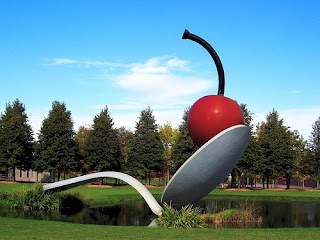*This is where I would work from :) Photo courtesy of BDA Rebel
Back in November of 2007 I wrote a post for Tactical Philanthropy about how work flexibility in the foundation sector would increase the effectiveness of grantmakers. That post was inspired by the great work of Cali Ressler and Jody Thompson, the creators of Best Buy's Results-Only Work Environment (R.O.W.E.). Cali and Jody now have a wonderful book out called "Why Work Sucks and How to Fix It." This dynamic duo are proposing a new way of work where "people can do whatever they want, whenever they want, however they want, as long as the work gets done." This is NOT the same as telecommuting or flexible schedules. This is about completely changing the nature of work so that employees are accountable to what they accomplish for the organization, not how many hour they sit behind a desk. This also isn't some touchy feeling model of making employees happy, it's also about efficiency. Best Buy has seen a 35% increase in productivity since implementing the model, a decrease in turnover (a very expensive problem for nonprofits), and have a much happier and committed workforce.
I think this new model is important to the social sector because the work that we do is so important to the healthy functioning of our communities but the normal structure of work makes it impossible for you to be a normal functioning part of the community that you live in. How much time do you spend in traffic getting to your job and how much time do you spend in you local park getting to know your neighbors? Who says that you can't be working from a laptop while sitting in a park chatting with your neighbors?
People work for nonprofits because they care about the work of the organization, what if nonprofits changed the nature of work to show that they care about the people that are making the organization successful?
What would it take to make this the norm in the nonprofit sector?



